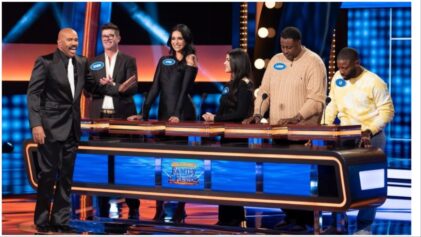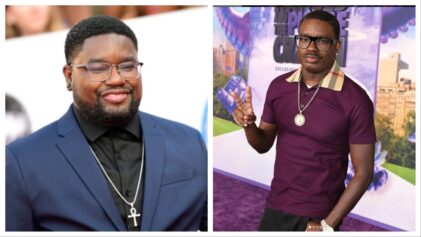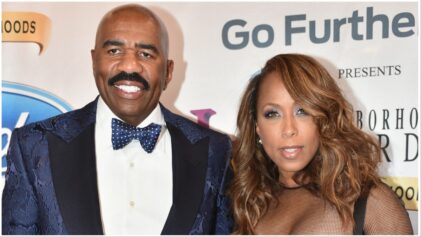Steve Harvey and Ted Harbert go way back — all the way to 1994, when Harbert, then president for entertainment at ABC, ordered a Harvey-led sitcom called “Me and the Boys.” The sitcom failed, as most do.
But in 2011, “when my name came across his desk, he remembered me,” Harvey said this month, sounding appreciative still.
At the time Mr. Harbert, the new chairman of NBC Broadcasting, needed ideas for his stations’ flagging daytime schedules. When his staff members handed him a page-and-a-half-long list of names of possible syndicated talk-show hosts, Harvey’s name stood out.
Today both men are thankful it did. Since its September debut “Steve Harvey” has been the surprise hit of daytime TV, averaging a rating of 0.9 among women ages 25 to 54. It’s been gathering steam, posting a 1.0 rating in February, enough to tie Katie Couric’s syndicated talk show for the first time. Harvey’s show is already posting a slight profit, according to Endemol, the company that produces it for NBC, which then sells it to stations across the country.
“Frankly,” Mr. Harbert said, “it’s hard to get real solid wins in the television business these days, and this is just a solid win.”
The ratings have cemented Harvey’s status as one of the foremost entertainers in America, one who juggles a national morning radio show, the game show “Family Feud” and side projects — if they can be called that — like a feature film, “Think Like a Man,” that made $100 million last year.
Mr. Harvey, a stand-up comic who used to see himself in the late-night mold but now hosts advice segments like “United Dates of America,” is adjusting to all the attention. Recently The Hollywood Reporter dared ask in a headline if he was “the next Oprah.”
“That’s a scary headline, man,” he exclaimed in a telephone interview before saying all the right things about Winfrey being “one of a kind.”
It’s true that no daytime host is likely to ever reach Ms. Winfrey’s ratings highs. Among talk show hosts, Phil McGraw (Dr. Phil) and Ellen DeGeneres are the closest, with a 1.7 rating among women 25 to 54, compared with Winfrey’s 3.1 in her final season in 2011. But stations still want to draw the biggest audience they can at 3 and 4 p.m., leading into their local newscasts and their prime-time lineups. Harvey’s show, seen at 3 p.m. in many markets, has helped them do that for a fraction of the cost of Couric’s show.
While Couric and Winfrey, now on her own cable channel, compete for boldface-name interviews, Harvey gravitates toward normal-people stories, relationship advice and inspiration (“Harvey’s Heroes” is a recurring segment), much as Winfrey’s show did in the 1980s and ’90s. Winfrey must like what she’s seen because she agreed to appear on Harvey’s show this month, an implicit endorsement. Their conversation will be televised at the end of April.
“I won’t be Oprah, but maybe baby Oprah,” Harvey said with a laugh after he’d let his guard down a bit about that scary headline. “Just call me little O!”
While many of his older fans are, like him, African-American, Harvey has demonstrated that he has significant crossover appeal. When discussing the show he likes to say, humbly, that, “I’m not an expert on anything except manhood.” But that’s valuable, it seems, to the women who make up most of the daytime TV audience and are coveted by advertisers.
Read More: nytimes.com


